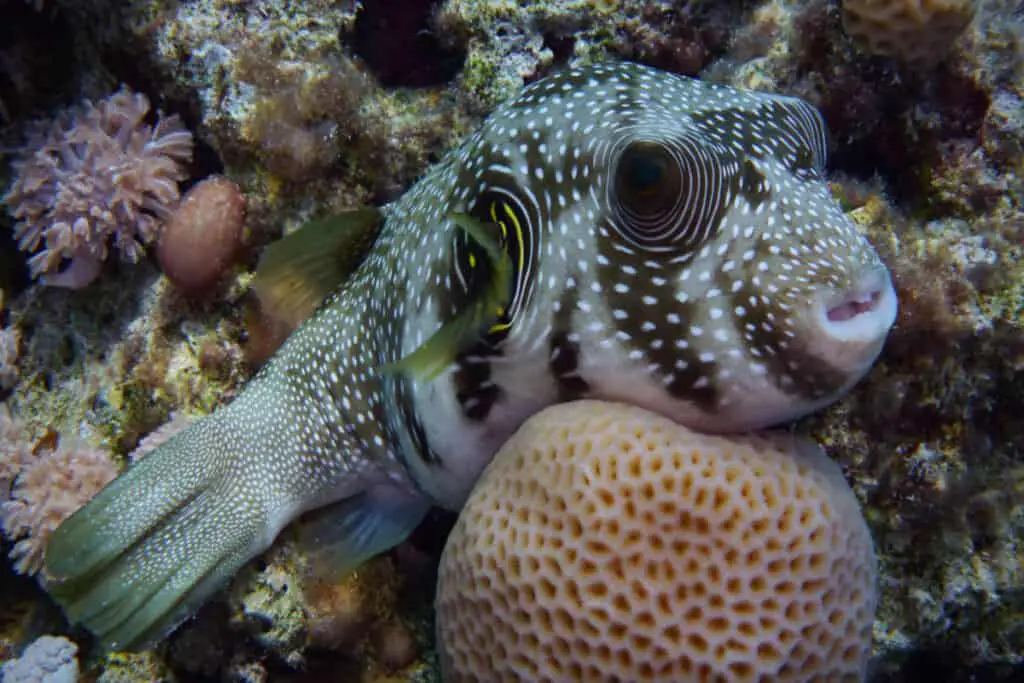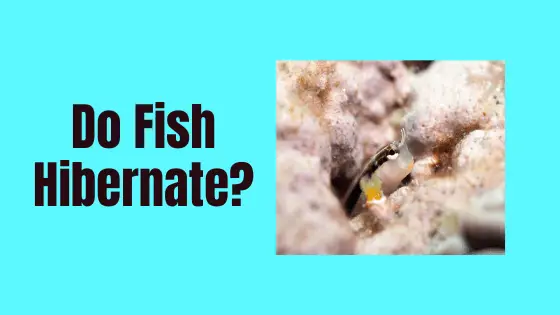As the cold temperatures begin to draw closer, many animals will go into hibernation, both in the water and on land.
Hibernation is the term for the process in which many species go into a quasi-coma and reduce their metabolic activity in order to conserve energy.
This allows them enough energy for the gap in-between seasons.
However, not every creature will go into hibernation.
In this article, we will discuss whether or not fish hibernate, and more! So, if this is of interest to you, then keep reading for the answer.
Now, I know you may be wondering why I am talking about fish hibernating when our fish live in a lovely warm fish tank all year round? I think it’s good to know about the natural habitat of our fish. Knowledge is power, after all.
Do Fish Hibernate?
No, fish do not hibernate. Fish (in their natural habitat, rather than in a fish tank), like many other creatures, will slow down in the winter as a form of rest, but they do not hibernate.
Fish are a cold-blooded species, and cold-blooded animals will have an internal body temperature that has the ability to change as the environmental conditions change.
So, with the main environment of a fish being aquatic, their body temperature and metabolism will fluctuate with the temperature of the water.
This means that when the seasons change to winter, fish become almost dormant. They will slow down thanks to their cold-blooded nature, but they will not go into total hibernation.
What Do Fish Do Instead Of Hibernating?
Instead of hibernating, fish will go into a resting state. While they are in this state, their heart rate will slow down and they move less, requiring less oxygen and food.
Often, you will find layers of ice on bodies of water. This will insulate the water and allow fish to have a warm place where they can rest.
Even though this sounds a lot like hibernation, it is actually a phenomenon called Torpor.

What Is Torpor?
As previously mentioned, this is the term for the state fish enter in the winter, as opposed to hibernation.
With Torpor, living organisms rest in environments that are natural to them, they do not need to find a specific spot suitable for their winter shelter, as is the case with hibernation.
This is great because fish can only live in water and so have no other place to go when winter comes around.
Additionally, when fish are in a Torpor state, their body temperatures will be higher than the body temperatures of creatures in hibernation.
Torpor also provides us with an explanation as to why it is difficult to go fishing during the colder, winter months. Fish are far less likely to take pole bait because they are so inactive during this time.
Are There Any Exceptions To This Rule?
Yes! There are exceptions to the fish-hibernation-Torpor rule. Some fish will actually hibernate. This is the case for Giby and Koi fish.
These types of fish will come together under some loose sediments and go into quasi-hibernation. However, it is still not considered to be a full hibernation, and therefore not a full exception.
When Do Fish Come Out Of Their Torpor State?

Certain fish, like Koi, Goldfish, and other types, will leave their torpor state once it starts to get warmer. This generally happens during the spring, or if there is a period during winter that is milder.
If you have a pet fish in an outside pond and you notice that they have come out of torpor during the winter, then you should not panic! All you need to do is give them some extra food.
Then, once the temperatures drop, they will return to their torpor state until it is warm enough to come out of it once again. It is important to remember that since torpor is a natural state, it is normal for fish to dip in and out of it during the winter.
Typically, fish will be in torpor for a few months. During this state, they may move around a little, eat some algae, and then go back into “sleep” once again.
Once the water temperature sits at 50°F for a few consecutive days, then your fish should leave their torpor state and go back to their usual selves – including activity levels, feeding patterns, and alertness.
It is important to note that you should never try to force your fish to leave their torpor state before they are ready.
This can cause injury, shock, or the unnecessary use of their energy reserves that they will still need until the winter is over.
What Do Fish Eat In The Winter?
In the winter, a fish’s metabolism will slow down, so they need to eat much less than they normally do.
While in torpor, their bodies’ will release hormones that reduce their appetites and conserve their energy. This also decreases their tissue growth and protein synthesis.
However, this does not mean that they stop eating altogether, and they do in fact need some small amounts of food to survive.
So, generally lake fish like Perch, Bluegills, and Crappies will still eat bait like midge larvae or bloodworms. So, if you’re trying to catch fish in the winter, then this is the best pole bait to use.
Generally, pond fish will graze on algae or plants that are already there.
Final Thoughts.
Fish do not actually hibernate! In the winter, they go into a state known as torpor. Torpor is similar to hibernation; fish will enter a resting state in which their heart rate slows down and they move less, meaning they require less food and less oxygen.
During Torpor, a fish can still move around and will still need to eat, although they do need to eat much less.
If you notice your pond fish leaving torpor during the winter, do not panic, as this is perfectly normal. You simply need to feed them and then wait until the temperature drops. They will return to torpor again.
Fish will leave their torpor state permanently when the temperature becomes consistently warmer, such as during the spring. It is important that they never force your fish to leave their torpor state before they are ready.
We hope this article helps you to understand everything you need to know about fish hibernation.


